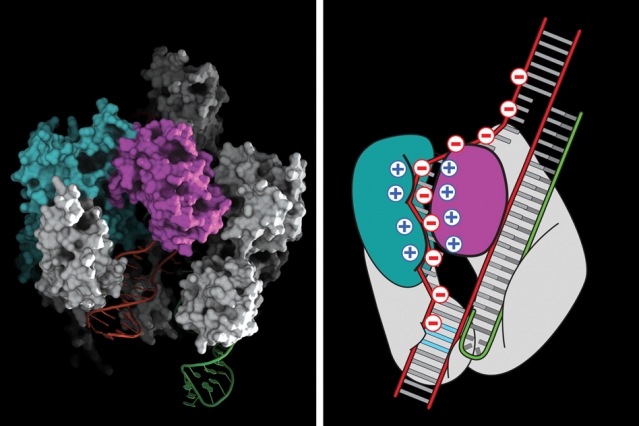
The researchers used structural knowledge of Cas9 to guide engineering of a highly specific genome-editing tool. Courtesy of Ian Slaymaker/Broad Institute of MIT and Harvard
Team re-engineers system to dramatically cut down on editing errors; improvements advance future human applications.
The following is adapted from a press release issued today by the Broad Institute.
Researchers at the Broad Institute of MIT and Harvard and the McGovern Institute for Brain Research at MIT have engineered changes to the revolutionary CRISPR-Cas9 genome editing system that significantly cut down on “off-target” editing errors. The refined technique addresses one of the major technical issues in the use of genome editing.
The CRISPR-Cas9 system works by making a precisely targeted modification in a cell’s DNA. The protein Cas9 alters the DNA at a location that is specified by a short RNA whose sequence matches that of the target site. While Cas9 is known to be highly efficient at cutting its target site, a major drawback of the system has been that, once inside a cell, it can bind to and cut additional sites that are not targeted. This has the potential to produce undesired edits that can alter gene expression or knock a gene out entirely, which might lead to the development of cancer or other problems.

